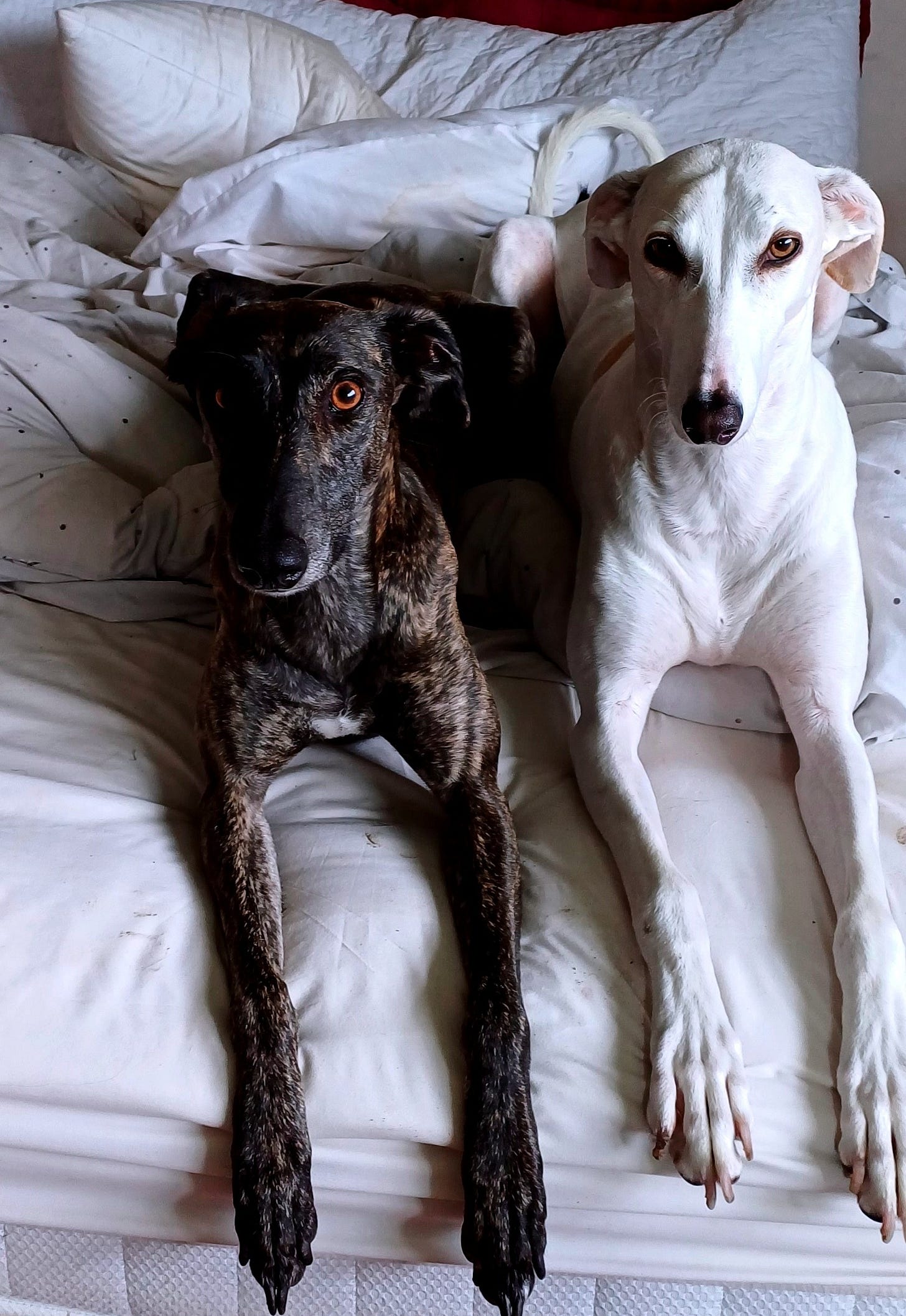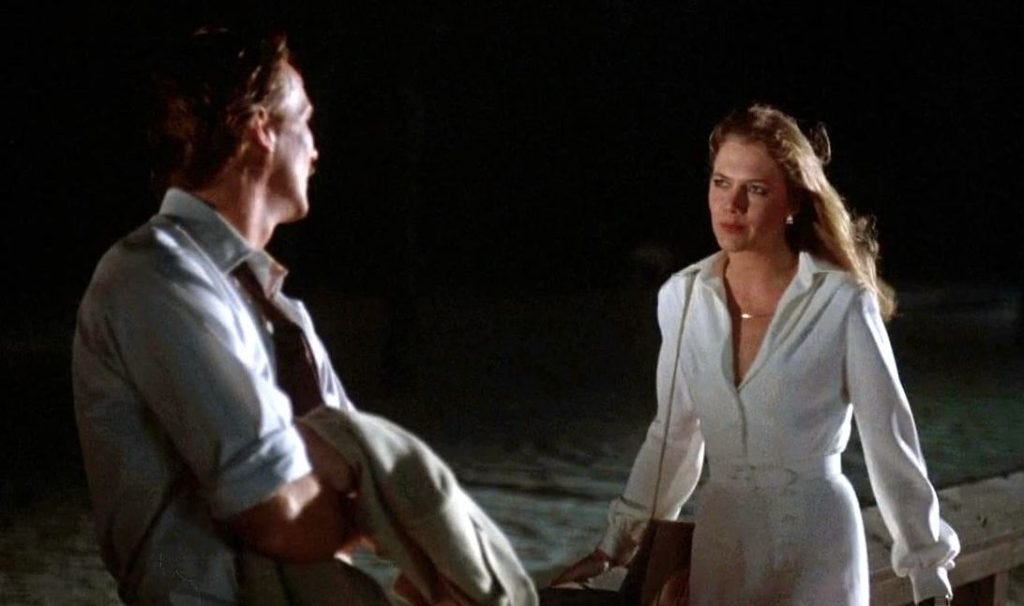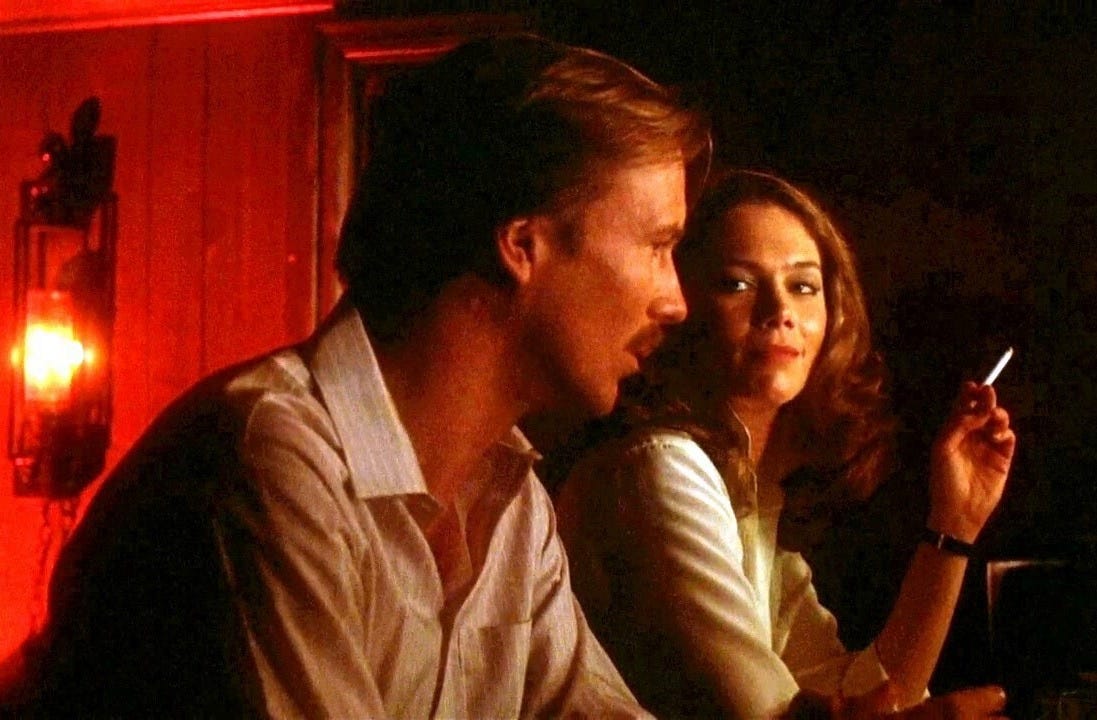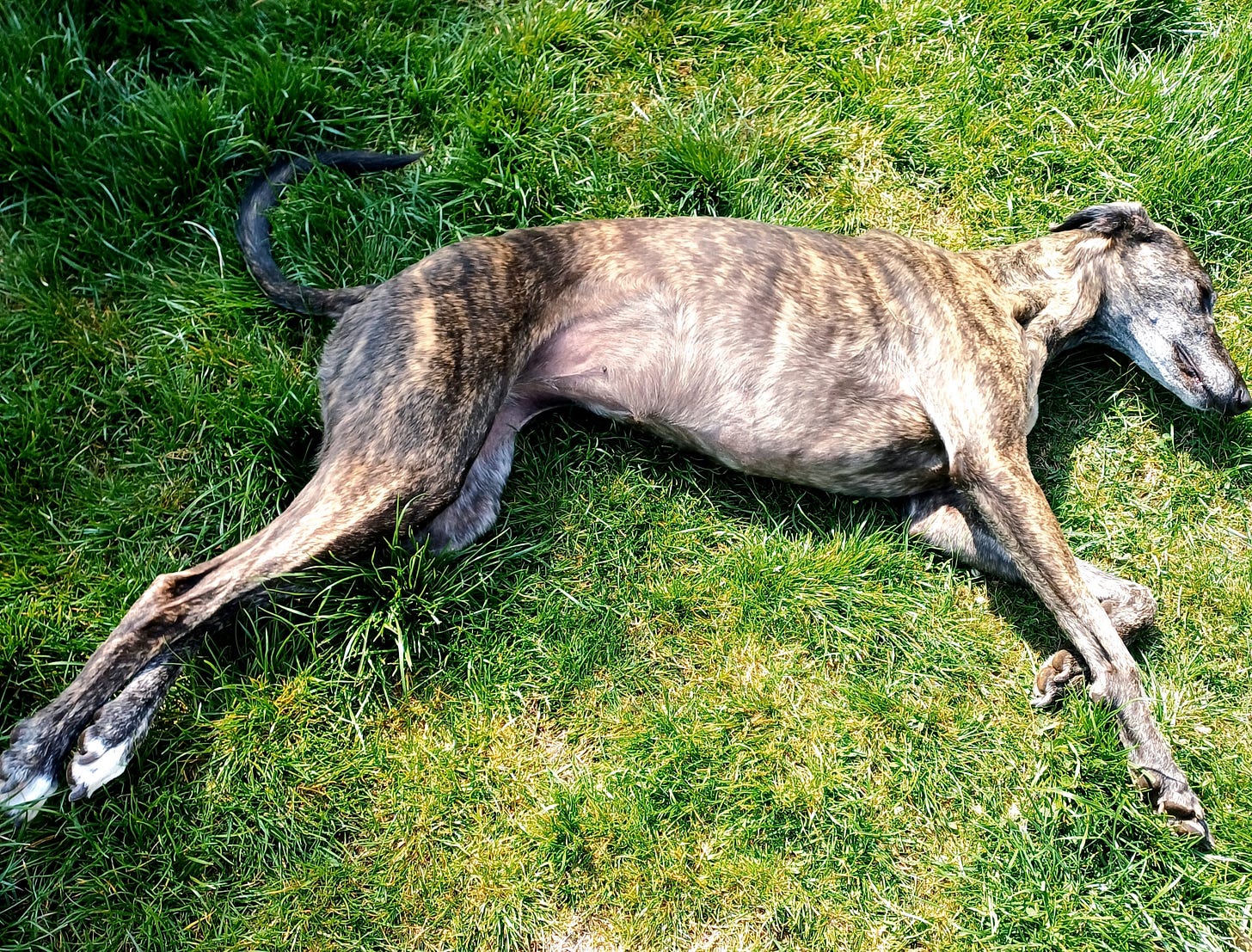I adore this weather. I am like Nancy Mitford, for whom no heat was too hot. She was describing Provence, which was no doubt far hotter than I am right now, although by English standards we are all aflame … I am back to putting ice cubes inside my clothes and taking cold showers, dressed, then letting everything dry while still wearing it (which sort of works, although I would hesitate to call it a ‘tip’). The dogs do not like it. One would think that greyhounds, who have no coats to speak of, would be fine - think of the poor Borzois, I say to them, who are basically you in fur coats - but there is much drooping about, and baleful staring, and casting down of ribby bodies in any place that seems marginally less awful than where they were before.
Well: I’d rather be at Wimbledon than sitting here on a terrible deadline (fortunately no chance of being in that slightly naff Royal Box, with its random celebrity pic ‘n’ mix, which always makes me wonder: what, exactly, does Rami Malek chat about to Gary Lineker?) But I will take July in any way it comes, because even though August is les grandes vacances it also brings the return of the football season (TOO SOON) and makes me fret about this passage from The Woman in White, which I found almost distressing when I first read it:
It was the last day of July. The long, hot summer was drawing to a close; and we, the weary pilgrims of the London pavement, were beginning to think of the cloud-shadows on the cornfields, and the autumn breezes on the sea-shore…
Dear Wilkie Collins, what are you talking about? The last day of July falls during the week of Goodwood: a height-of-summer race meeting. Nevertheless the passage is a reminder, to me at least, to be in the moment, rather than always anticipating the end of things, which will surely come soon enough.
So this is a little post in praise of this moment of heatwaves, and of the film Body Heat, which I recommend any time you want to watch people who look as though they feel even hotter than you do. I wrote about it last year when the temperature went above 30 - this is a longer version, but essentially a repeat - some of you will have read the original already, therefore, but I felt that the weather plus lots of new subscribers (heartfelt thanks to you all) made it worth another outing.
Neo-noir for the Reagan era, as I called it in my recent summer reading post, this 1981 film is Double Indemnity revisited, coloured in unsettling red, white and shades of night: Kathleen Turner and William Hurt melting each other with their barometer-bursting chemistry, a fabulous early cameo from Mickey Rourke (what a one-off he was, with his lip-dabs and droll vulnerability), and an elegantly elliptical turn from Ted Danson, who is the intelligent conscience of the film and almost steals the whole thing.
The film sweats and streams heat. It begins with a building going up in flames and retains throughout a sense of embedded fire. Fans spin slowly, as if exhausted by the fight. Ribbons tied to air-con units flap like dazed butterflies in the thick, wet humidity. Cigarettes are constantly lit, every one a mini-conflagration. The scene in which William Hurt first meets Kathleen Turner takes place outdoors, in the evening, in an unstable breeze, to the listless sound of an old-style band: ‘You have to promise not to talk about the heat’, is his chat-up line. Outside her sumptuous Florida house, from which her rich older husband is absent, wind-chimes jangle like alarm bells as Hurt’s combustible desire suffuses the screen; after scorching each other’s skin the couple take a bath full of ice cubes, and one feels their satiety and relief before the heat starts to build again, and with it the urge to kill.
It is a classic story, of course: Thérèse Raquin and Death on the Nile and any number of others, in which all the fiery sins build a conflagration that will inevitably consume itself. The twist within Body Heat - as with Double Indemnity - arises from the trope of the femme fatale: a noir trope of course, but as old as Eve. Because Kathleen Turner’s Matty Walker is not what she seems, and indeed only a lustful sap like William Hurt’s Ned Racine (great name) would have believed her to be - blind to the irony of that all-white outfit - certain aspects of the story have to be explained; taking it slightly into Agatha territory (switched identities and so on). This makes the end of the film - its coda - the weakest part, but that is because its atmosphere is so complete, and so much more powerful than its plot. The woman, too, is powerful. She deploys desirability to achieve her own desires, albeit at an ambiguous price.
I have always thought William Hurt a truly great actor - nobody plays blankness so eloquently; remember him as the pretty-boy anchor who doesn’t understand the words on his autocue in Broadcast News - and here he is simply superb as a low-rent lawyer, insanely attractive despite his dank brow and sodden shirts, his near-expressionless face bespeaking inner volcanoes of desire and guilt and confusion. I love his relationship with his fond, sad, suspicious friends, deputy prosecutor Ted Danson and cop J.A. Preston. I love that he wears average clothes and has a non-gym torso (the moment he enters his flat he strips off and stands in front of the open refrigerator). Even Kathleen Turner’s you shouldn’t wear that body gorgeousness looks real, that of a credible trophy wife, a straightforwardly good-looking woman - just twenty-six at the time, but proudly adult - rather than a construct.
Nevertheless the film itself - the directorial debut of Lawrence Kasdan, who also wrote the wonderful script - is a construct, a hommage. I remember after the first time I saw it, some twenty-plus years ago, reading that very up-itself review by the ‘legendary’ Pauline Kael, the gist of which was that recreating noir tropes - murder, smoking, shadowy bars, men played for fools - created an artefact that was, in 1981, essentially lifeless.
Well: perhaps. Forty-plus years ago one could be critical to that heightened level, before tropes took over the cultural world and originality fled the scene with a swagbag full of rejected ideas.
Today I would collapse in gratitude for a film like Body Heat.








Hurt is one of my favourite actors. I love his Rochester - superb English accent and understated while so attractive and wounded. You have bewitched my horse!
I recall seeing "Body Heat" at my local cinema when it was first released. I love the scene where Matty says to Ned, "You're not too smart, are you? I like that in a man."